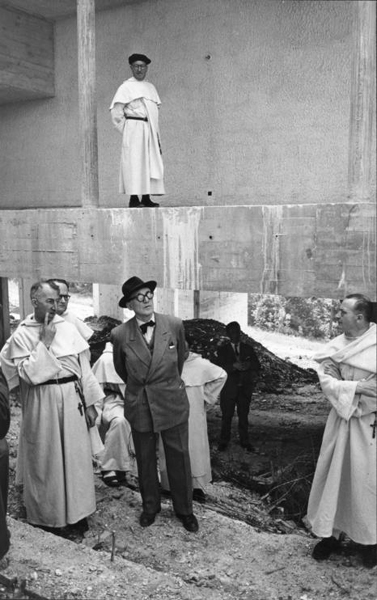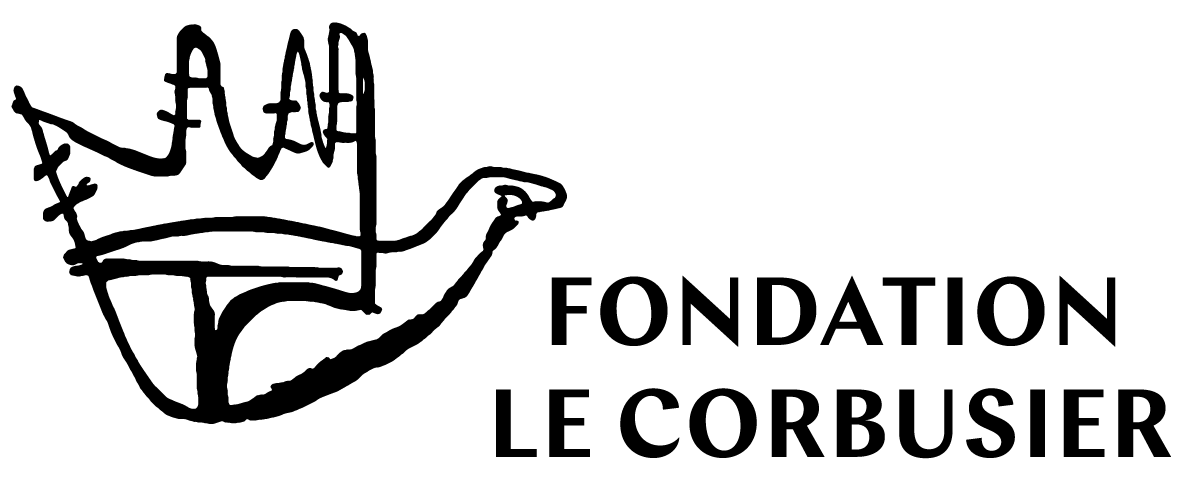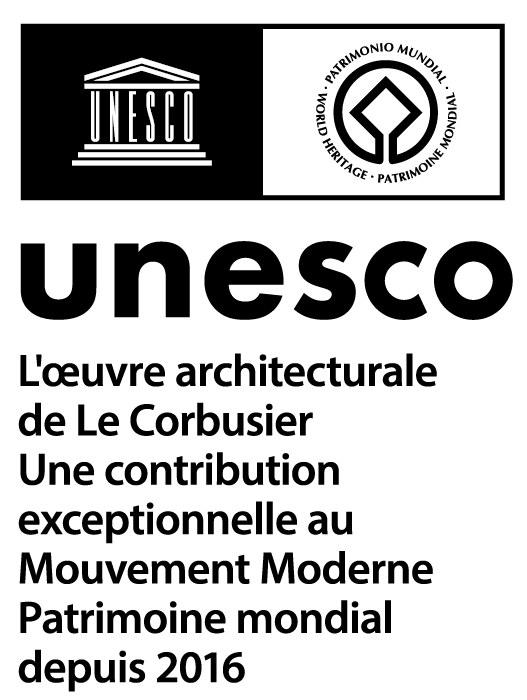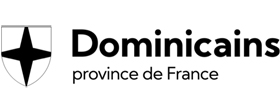Conçu par Le Corbusier
Charles-Edouard Jeanneret Gris, dit Le Corbusier, est né en 1887 à La Chaux-de-Fonds en Suisse. Étudiant en art, il s’oriente vite vers l’architecture. Il s’installe à Paris en 1917. Il découvre les possibilités offertes par un matériau nouveau mis en œuvre chez Auguste Perret : le béton armé. Sa pensée se veut en accord avec la société moderne, industrielle. « Ainsi l’architecture devient-elle le miroir du monde » (Vers une architecture, 1ère publication 1923). Ses réflexions traitent l’architecture à différentes échelles : du logis à l’urbanisme, il s’affaire à penser l’architecture au plus près du monde et des besoins modernes.
La carrière de Le Corbusier débuta dans les années 1915. Il s’entoure de nombreux collaborateurs (à La Tourette, le musicien Iannis Xénakis). Plusieurs projets sont en chantier lorsqu’il meurt en 1965, à Roquebrune-Cap-Martin (Provence, France).
Le Corbusier a le souci de construire au plus près des besoins de l’homme : un espace pour chaque fonction de la vie quotidienne. Au couvent de la Tourette, Le Corbusier comprend les rythmes de la vie religieuse en 3 temps distincts : vie individuelle, vie collective et vie spirituelle. On lira ces 3 fonctions primordiales (habiter, étudier et prier) dans les volumes qui articulent le couvent.
"J’ai la passion de mon métier. Je crois qu’on vous a fait un beau couvent. Je regrette souvent de n’avoir pas une journée à consacrer à une visite chez vous. […] Hélas, mon métier m’oblige à être un voyageur impénitent, un Pierre l’Ermite déambulant. Pour finir, laissez moi vous affirmer, bien sérieusement, que j’ai eu une très grande joie à entreprendre la Tourette, à y passer, à vous voir, et je vous remercie de cette joie que vous m’avez donnée."
Lettre du 15 février 1963 de Le Corbusier au père Levesque
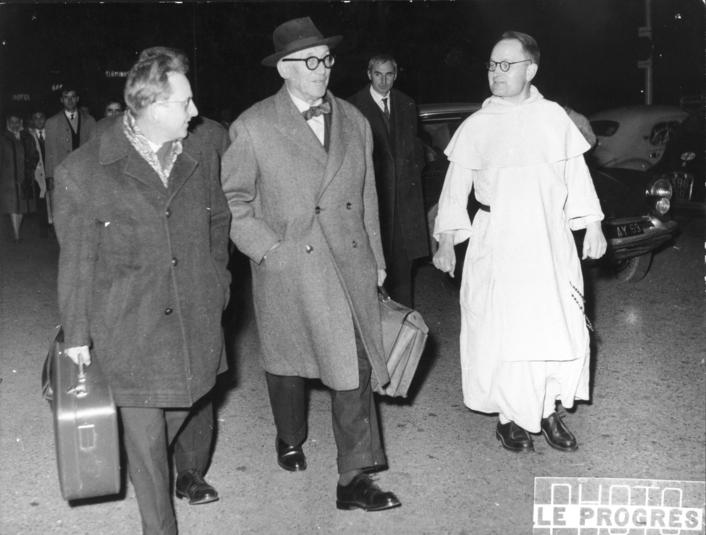
Why the Convent of La Tourette is so particular ? (English Subtitle)
Designed by Le Corbusier
Charles-Edouard Jeanneret, known as Le Corbusier, was born in 1887 in La Chaux-de-Fonds, Switzerland. As an art student, he quickly turned to architecture. He moved to Paris in 1917. He discovered the possibilities offered by a new material used by Auguste Perret: reinforced concrete. His thinking was in line with modern, industrial society. "Thus architecture becomes the mirror of the world" (Vers une architecture, 1st publication 1923). His reflections deal with architecture on different scales: from the dwelling to urban planning, he is concerned with thinking about architecture as closely as possible to the world and to modern needs.
Le Corbusier's career began in 1915. He surrounded himself with numerous collaborators (at La Tourette, the musician Iannis Xénakis). Several projects were underway when he died in 1965 in Roquebrune-Cap-Martin (Provence, France)
Le Corbusier's concern is to build as close as possible to the needs of man: a space for each function of daily life. In the convent of La Tourette, Le Corbusier understood the rhythms of religious life in three distinct phases: individual life, collective life and spiritual life. These three primary functions (living, studying and praying) can be read in the volumes that articulate the convent.
"I have a passion for my work. I think we have made you a beautiful convent. I often regret not having a day to devote to a visit to you. [...] Alas, my profession obliges me to be an unrepentant traveller, a wandering Peter the Hermit. To finish, let me tell you, quite seriously, that I had a very great joy in undertaking La Tourette, in passing through, in seeing you, and I thank you for this joy that you gave me.
Letter of 15 February 1963 from Le Corbusier to Father Levesque
